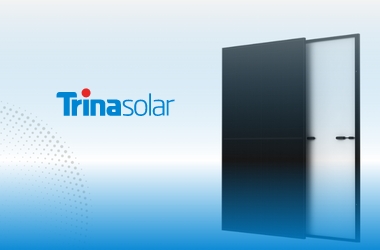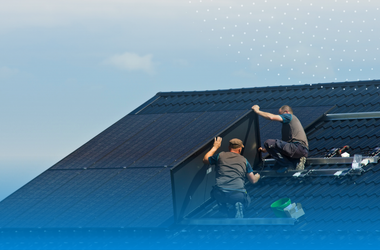Committing to solar: what you need to know
- 22/03/04
- Customer Value,Panel Talk and Technology
The economic and environmental benefits of solar power are extremely favourable for homeowners. By harnessing sunlight and converting it into energy, solar panels have the potential to reduce bills, increase property value, and reduce your carbon footprint.
For some, the decision is a no-brainer. But after deciding to switch to solar, you’re soon faced with a lot of information and questions that may seem pretty daunting at first. This blog will unpack everything you need to know about choosing your solar panels, so you can find the best products for your home and energy requirements.
Criteria for solar panels: What do I need to consider?
Energy Production
One of the most important factors when choosing solar panels is the amount of electricity they can produce. Production rate depends on factors like temperature coefficient, power tolerance, efficiency and power rating. Checking these criteria for solar panels will tell you how much power a panel can produce.
The Trina Solar Vertex S range generates up to 410Wp power even in limited space, achieving 21.3% module efficiency with high-density cell interconnection. Using multi-busbar technology, the planes offer better light trapping, lower series resistance, improved current collection and enhanced reliability.
Durability
Solar panels are designed with durability in mind, but extra consideration should be taken if you live in an area with heavy snow or strong winds. If you do happen to be in an extreme weather area, panels that meet the reliability standard ‘IEC 61215 and 61730’ have passed an accelerated outdoor stress test to ensure their durability.
Manufacturer quality and warranties
Solar panels become less efficient as the electronics degrade over time. Although this is unavoidable, equipment quality can vary depending on the manufacturer. Panel quality tends to be indicated by the warranty and assurances offered by the manufacturer themselves. Trina Solar gives a product workmanship warranty of 15 years and a power output warranty of 25 years for Vertex S.
Size and aesthetics
Another key consideration is finding the right product that will suit your home in terms of size and aesthetics. We offer a variety of modules and solutions to fit your solar panel needs.
Designed with aesthetics in mind, the Trina Solar Vertex S range features excellent cell colour control by utilising blackening treatment and machine selection. Its ultra-thin, virtually invisible busbars make this module ideal for residential rooftop applications.
And as it’s designed for the best balance of power, size and weight, the Vertex S range also gives you up to 70W more power while remaining comparable in size with conventional products.
Types of inverters
A solar energy system consists of two main components: the panels themselves, and the inverter which converts the collected sunlight (DC energy) into a usable form of electricity (AC power). There are two main options to consider when choosing your inverter, the cheapest being a string inverter, and the other being module-level power electronics (MLPE) which are more expensive but usually more efficient.
String inverter
A string inverter feeds all DC energy to a single inverter, which then changes it to AC power, making it ready to use. If your system is working in optimal conditions, meaning high efficiency, a string inverter is usually a good choice.
Module-level Power Electronics (MLPE)
MLPEs tend to be more expensive, but also more efficient. When conditions are less-than-optimal, for example in slightly shaded areas or difficult angles, MLPEs can produce more energy. With MLPEs, each panel has its own individual inverter which makes DC into AC to allow for panel-level monitoring.
Finding the right installer
Choosing the right installer is one of the most important criteria for solar panel installation. Make sure to verify an installer’s certifications, licences and customer reviews. Price may also vary considerably, so be sure to shop around. Installers should also be a valuable and trustworthy resource to help you go solar, on-hand to answer your questions throughout the installation process.
Finding a distributor
When deciding where to buy your first solar panels and inverters, ensure your installer is buying from a qualified distributor. Visit our Where to Buy page to see our authorised Trina Solar distributors and resellers.




